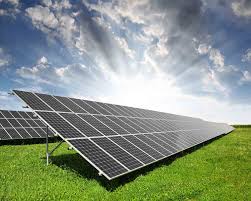As global energy demands surge and sustainability becomes a corporate priority, industrial facilities across Pakistan are increasingly turning to industrial solar solutions to meet their power needs. From reducing operational costs to achieving environmental goals, solar technology is revolutionizing how manufacturing plants and large enterprises approach electricity generation. With 8 to 10 hours of daily sunlight available in many parts of the country, solar energy provides a consistent and powerful opportunity to lower dependency on the grid and fossil fuels.
This article explores the full spectrum of benefits industrial solar systems offer, helping businesses thrive in a cost-effective, energy-efficient, and environmentally responsible way.
Rising Energy Demands in Pakistan’s Industrial Sector
Industries in Pakistan—such as textile, cement, food processing, chemicals, and metallurgy—are among the highest consumers of electricity. Due to outdated grid infrastructure, power outages, and increasing fuel prices, many businesses suffer from unpredictable energy supply and rising operational costs.
Key Energy Challenges for Industries:
- Load shedding that disrupts production schedules
- Expensive electricity rates affecting profitability
- Reliance on diesel generators with high fuel and maintenance costs
- Poor grid reliability in industrial zones
- Growing demand for clean energy from international clients
These pain points underscore the urgency for industries to adopt sustainable and self-reliant energy systems.
What Are Industrial Solar Solutions?
Industrial solar solutions are large-scale photovoltaic (PV) systems tailored to meet the energy needs of manufacturing plants, warehouses, and production facilities. These systems are typically grid-tied or hybrid, offering continuous energy during both peak and off-peak hours.
Key Components:
- High-efficiency solar panels capable of handling large loads
- Inverters optimized for three-phase industrial machinery
- Battery storage systems (optional) for critical backup
- Energy monitoring platforms to track real-time performance
- Mounting infrastructure for ground, rooftop, or canopy installations
With proper planning and execution, these systems can power entire factories or significantly offset their grid dependency.
Cost Savings and Financial Returns
One of the most attractive benefits of solar for industries is the potential for long-term cost reduction. By investing in solar, companies can produce their own electricity and reduce grid consumption, significantly lowering monthly bills.
Financial Advantages:
- Reduction of electricity bills by up to 60–80%
- Minimal maintenance costs after installation
- Elimination of diesel generator expenses
- Long-term asset with 25+ years of panel life
- ROI within 3 to 6 years depending on system size and usage
These savings improve cash flow, allowing businesses to reinvest in other areas of operation.
Energy Security and Reliability for Critical Operations
Energy security is essential in manufacturing where downtime directly impacts output and revenue. Solar systems provide a reliable source of electricity, ensuring smooth operations even during grid failures.
Industrial Continuity Benefits:
- Seamless power supply with hybrid solar setups
- Avoidance of production halts due to outages
- Efficient energy flow for heavy machinery
- Stabilized voltage and reduced fluctuations
- Extended equipment life due to consistent power quality
When paired with battery backup or generator integration, solar solutions ensure complete operational continuity.
Environmental and Regulatory Benefits
Sustainability is no longer optional for businesses. Industrial solar solutions help companies align with local and global environmental standards, making them more competitive and future-ready.
Green Business Benefits:
- Reduction in carbon emissions and fossil fuel consumption
- Eligibility for environmental certifications (LEED, ISO 14001)
- Improved ESG (Environmental, Social, Governance) reporting
- Support for Pakistan’s climate action goals
- Appeal to eco-conscious clients and investors
These advantages also help manufacturers compete in international markets where green compliance is often mandatory.
Customization and Scalability of Industrial Systems
Unlike residential or small commercial systems, industrial solar setups are fully customizable based on production cycles, load types, and site structure. This flexibility makes them suitable for various sectors.
Customization Parameters:
- Day vs. night energy demand
- Seasonal variation in production
- Type of industrial machinery and voltage requirements
- Available roof or land area
- On-grid vs. off-grid options
Moreover, solar systems are easily scalable. Businesses can begin with a partial system and expand as needs grow, avoiding complete overhauls.
Net Metering Advantages for Industrial Setups
Net metering allows industrial facilities to send excess solar energy back to the grid and receive credit on future utility bills. This process significantly boosts energy efficiency and overall system value.
Key Benefits of Net Metering:
- Monetize surplus power generated during low demand periods
- Offset grid consumption during peak operations
- Enhance ROI on solar investment
- Contribute to national power grid stability
- Reduce need for large-scale battery storage
For 24/7 manufacturing units, net metering ensures maximum economic benefit from solar power production.
Enhanced Corporate Image and Brand Value
Adopting solar energy is also a strategic branding move. In today’s conscious consumer market, sustainability translates into trust, loyalty, and market differentiation.
Brand Perception Benefits:
- Positioning as an environmentally responsible organization
- Stronger appeal to B2B clients and stakeholders
- Ability to market products as “solar-powered”
- Positive media coverage and awards
- Increased employee morale and recruitment advantages
Green energy adoption can be a competitive edge in industries like textiles, FMCG, and electronics.
Performance Monitoring and Smart Management
Modern industrial solar solutions come equipped with advanced performance monitoring systems. These platforms help businesses gain full visibility and control over energy usage.
Monitoring System Features:
- Real-time data on energy production and consumption
- Predictive maintenance alerts
- System performance comparison by day, week, or month
- Mobile and desktop dashboards
- Integration with enterprise-level energy management software
This transparency empowers facility managers to optimize operations and reduce energy waste.
Minimal Maintenance and High Durability
Industrial solar systems are built for rugged use and long-term durability. Their components are tested for harsh environmental conditions such as high temperatures, dust, and wind.
Maintenance Advantages:
- No moving parts, reducing mechanical failure risks
- Scheduled annual inspections
- Panel cleaning to maintain output efficiency
- Remote diagnostics to detect faults
- 10 to 25 years warranty on components
A well-maintained system ensures a continuous power supply for decades.
Tax Incentives and Financing Options
In Pakistan, industrial solar adopters enjoy various financial incentives that make solar energy more affordable and accessible.
Available Incentives:
- Tax deductions on solar equipment investment
- Sales tax exemptions on renewable energy products
- Low-interest bank financing under the State Bank’s green financing scheme
- Leasing options for zero upfront cost
- Net metering incentives for long-term savings
These incentives help reduce the initial cost barrier and improve financial feasibility.
Solar Integration with Industrial Automation
Today’s solar technology can be integrated with smart industrial automation systems. This allows intelligent energy distribution, machinery control, and peak demand management.
Integration Features:
- Programmable energy usage patterns
- Load shifting to solar during peak generation
- Energy analytics to reduce idle power consumption
- Automated switching between solar, battery, and grid
- Smart alerts for abnormal energy behavior
This synergy between solar and automation ensures higher efficiency, safety, and reduced wastage.
Sector-Wise Application of Industrial Solar
Different industries have different energy needs. The versatility of solar systems allows for sector-specific solutions.
Industry Applications:
- Textile & Garments: Run weaving machines and lighting
- Food Processing: Refrigeration, baking, packaging equipment
- Pharmaceutical: Lab machinery, controlled environments
- Steel & Cement: Conveyor belts, motors, grinders
- Warehouses & Logistics: Lighting, HVAC, security systems
These applications show that solar is not limited to a specific niche but adaptable to a wide range of processes.
Key Considerations Before Installation
Investing in solar energy requires planning, site assessment, and evaluation of operational requirements.
Pre-Installation Checklist:
- Site feasibility and sunlight exposure
- Load profile and consumption analysis
- Available rooftop or ground space
- Regulatory compliance and local permits
- Vendor selection and after-sales support
A thorough assessment ensures that the solution aligns perfectly with business goals and energy needs.




